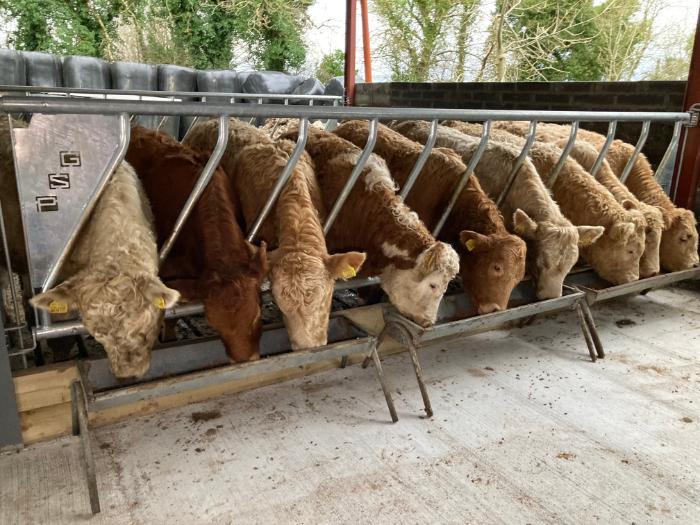Is Organic Farming Profitable?
By Enda O’Hart ,
Drystock Advisor, Teagasc Castlerea.
With the reopening of the Organic Farming Scheme (OFS) many farmers are wondering is Organic farming profitable. Based on 2022 figures comparing organic and conventional beef farms we find that organic farming is more profitable, that organic farmers are less intensity stocked, have lower costs and have a greatly reduced whole farm carbon footprint.
To assess the profitability of each system I have taken data from two sources, namely the 2022 National Farm Survey and the Teagasc 2022 E-Profit Monitor Programme. There is a caveat with the 2022 organic farmers E-Profit Monitor figures in that the sample size is small at 20.
|
National Farm Survey 2022 |
E-Profit Monitor 2022 |
||
|
|
Cattle Rearing |
Cattle Other |
Organic Farmers |
|
Land (Ha) |
31.3 |
37.2 |
42.9 |
|
Stocking Rate Lu/Ha |
1.11 |
1.32 |
0.81 |
|
Gross Output/Ha € |
985 |
1570 |
642 |
|
Total Costs/Ha € |
1135 |
1546 |
624 |
|
Net Margin excluding Direct Payments/Ha € |
-150 |
24 |
18 |
|
Net Margin including Direct Payments/Ha € |
300 |
506 |
741 |
There are a number of key messages coming from these figures and they are the following. Organic beef farms tend to be less intensively stocked than conventional beef farms. As a result of this, output from the organic farms is also smaller when compared to conventional beef farms. Total costs though, on organic farms are much reduced when compared to conventional beef farms €624 vs €1135 vs €1546/ha. This results in a net margin excluding Direct payments of €18/ha on organic farms and -€150 and €24/ha on the conventional farms. When Direct payments are factored into the net margin/ha figure then the organic system comes out best at €741/ha vs €300 and €506/ha for the conventional farms. This difference is mainly down to the Organic Farming Scheme (OFS) payment, which organic farmers avail of. The expectation is that this difference will widen as OFS payments increased in 2023 by about 50%.
When all these figures are assessed, we can say that organic beef farmers are financially better off than their conventional colleagues and that this profitability gap will widen due to increased OFS payments from 2023. Organic farms have lower stock numbers which results in a better quality of life due to lower labour requirements. Total costs are lower on organic farms which results in less cash flow pressures and a lower risk business model. Dramatically reduced feed and fertiliser inputs combined with lower stocking rates lead to a greatly reduced whole farm carbon footprint which really adds to the sustainability credentials of organic farming systems.
A Teagasc Organic Farming information meeting will take place in the Abbey Hotel Roscommon Tuesday 24th October at 11am. The meeting is for farmers who are thinking of joining Organics.

